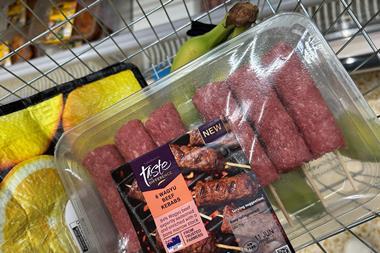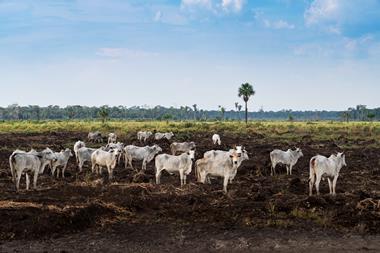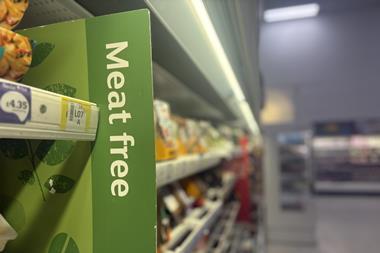Organic livestock farmer Steve Ramshaw of Northumbrian Quality Meats is on a mission to show that small farms can be sustainable if they aim high and try to produce top-quality meat I was born in a city and brought up in a council house on an estate, but always wanted a farm, and when I got to 40 I said it was now or never. I bought a 700-acre plot of derelict land 15 years ago and built a farm and five cattle sheds from scratch using knowledge from working in the construction industry. I am very conservation-minded and have planted 45,000 trees and dug a small lake for wildlife. The farm, near Otterburn, has 500 breeding Scottish Blackface sheep and 120 Aberdeen Angus cattle. It won best beef/sheep farm in the Organic Food Awards 2004. The sheep are the core business, but the Aberdeen Angus is the farm's real strength and is the future direction for the company. The aim is to get on the world map for the quality of our beef, and to that end I have just bought Wagyu cow embryos to implant in my Aberdeen Angus cows to produce Kobe beef. I also produce organic ready meals, pies, black pudding and 40 varieties of sausages, along with game, such as pheasant and venison, from the local estate. It is all sold under the Northumbrian Quality Meats brand. Local seems to be more important than organic now, and I think game is the meat of the future, as it is becoming more popular than ever. The products are distributed to speciality food shops, farmers' markets and on the internet, and I am increasingly supplying steaks to top-end restaurants. We can't have a farm shop because nobody would ever find us, but I have a butchery concession in Fenwick's food hall in Newcastle. I employ a staff of eight and have a turnover of £500,000 per year, but the business is growing steadily. I have had conversations with some of the large retailers, but there are problems associated with distribution and supply. I also find it hard to source enough to meet present demand. It is unbelievably hard trying to make money out of farming now. There are farms in this area running at below the cost of production, but we have managed to provide eight people with a living wage and make a good profit. I've shown that little farms can be sustainable, which was one of my goals, and that is done by not trying to compete with big food processors but by keeping small and concentrating on quality.
Close menu
- Home
- Retail & Wholesale
-
Products & Suppliers
- Back to parent navigation item
- Products & Suppliers
-
Product Categories:
- Back to parent navigation item
- Product Categories:
- Alcoholic drinks
- Bakery
- Cereals & breakfast
- Cheese
- Chicken & poultry
- Chocolate
- Confectionery
- Crisps, nuts & snacks
- Dairy
- Fish
- Fresh produce
- Frozen
- Household
- Meat
- Own Label
- Sauces & condiments
- Seasonal
- Soft drinks
- Vaping
- Vegan & plant-based
- World foods
- Suppliers
- People
- Reports & Data
-
Topics A-Z
- Back to parent navigation item
- Topics A-Z
-
Popular topics:
- Back to parent navigation item
- Popular topics:
- Cost of living crisis
- Crime
- Deposit Return Schemes
- Finance
- Government & Regulation
- Health
- Inflation
- Loyalty
- Marketing
- Mergers & Acquisitions
- New Product Development
- Sourcing
- Supply chain
- Sustainability & environment
- Technology
- Ultra Processed Foods
- Vaping
- A-Z all topics
- Content by type:
- Events
- Ask iA (beta)
- Subscribe now
Sign in to comment on this article
Not logged in before? Register for FREE guest access today.
You will be able to:
- Read more stories
- Receive daily newsletters
- Comment on stories
Advert


















No comments yet